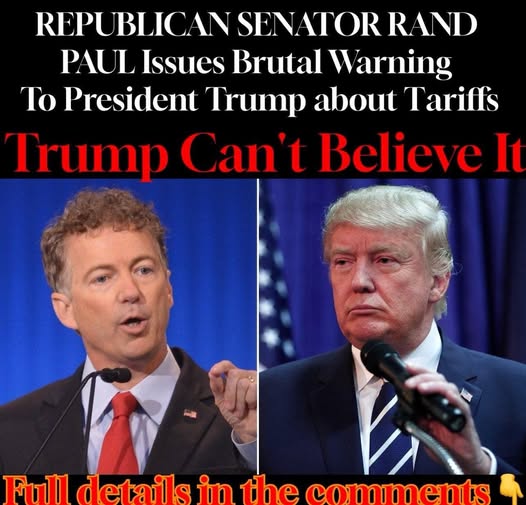In a bold move that has stirred debate within the Republican Party, Senator Rand Paul (R-KY) has publicly opposed former President Donald Trump’s push for renewed tariffs, marking one of the sharpest intra-party splits in the lead-up to the 2024 and 2025 trade policy battles.
Paul, a long-time advocate of limited government and free-market economics, has emerged as a leading voice against what he calls “executive overreach” in the realm of trade policy. Most recently, he co-sponsored a bipartisan resolution to repeal the national emergency declaration that allowed Trump to impose tariffs on Canadian imports without congressional approval.
“Tariffs are taxes, plain and simple,” Paul said during a recent Senate floor speech. “They don’t punish foreign governments. They punish American families.”

Paul’s criticism comes in response to Trump’s proposal to expand tariffs on goods from countries like Mexico, Canada, and China—policies Trump argues will bolster U.S. manufacturing and economic independence. But Paul sees it differently: as a dangerous expansion of executive power and a direct tax on consumers.
In April 2025, Paul joined forces with several Democratic and Republican senators—including Susan Collins, Lisa Murkowski, and Mitch McConnell—to pass a resolution curbing the president’s ability to impose tariffs unilaterally. The resolution passed 51–48 in the Senate, signaling a rare moment of bipartisan pushback against Trump-era trade strategies.
Despite intense criticism from Trump—who labeled Paul and his allies as “unbelievably disloyal”—Paul has remained firm. He argues that tariffs, far from strengthening America, are eroding constitutional checks and balances and undermining the economy by raising prices for U.S. businesses and families.
Paul is also backing legislation that would require congressional approval for any major tariff action, a direct attempt to reassert legislative control over trade.
“This isn’t about partisanship,” Paul noted. “This is about principle. No president—Republican or Democrat—should have unchecked power to rewrite economic rules at will.”
As the GOP grapples with its identity in the post-Trump era, Rand Paul’s stance could signal a deeper debate brewing within the party: one that pits populist protectionism against classical conservative ideals of free trade and limited government.